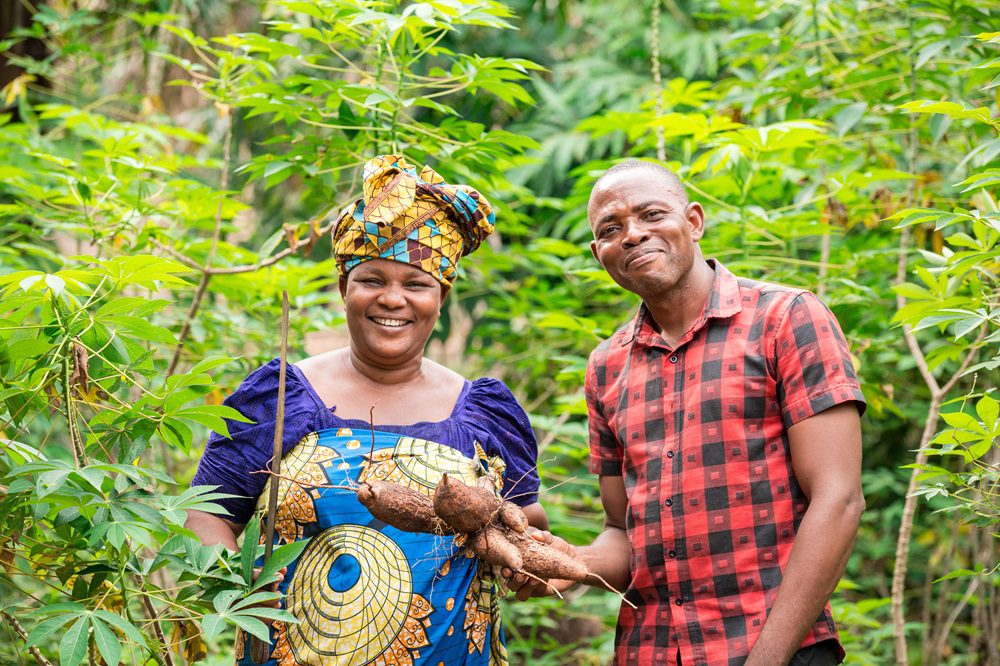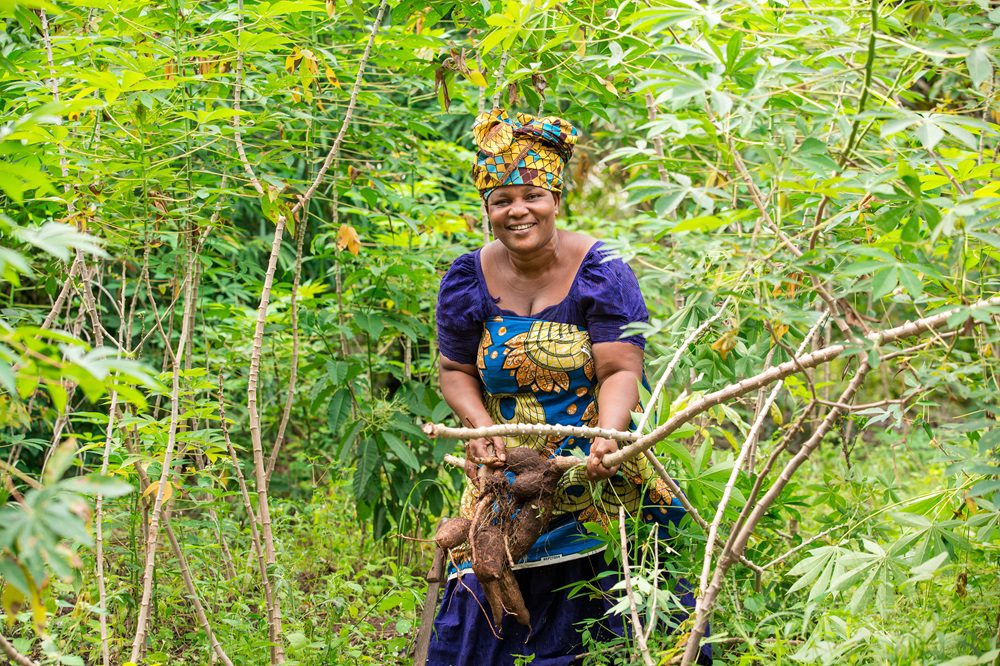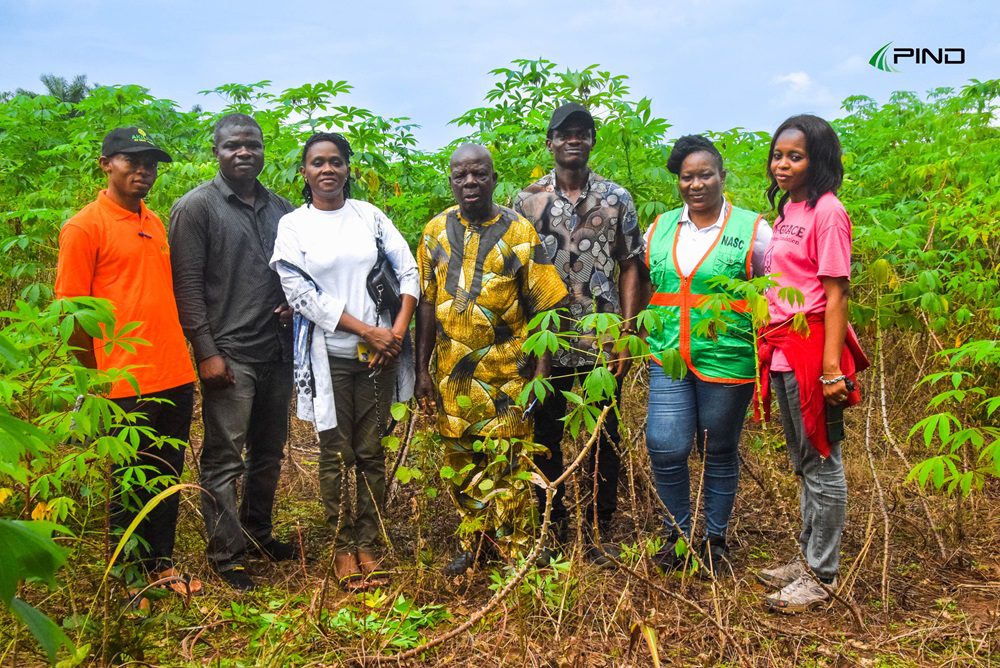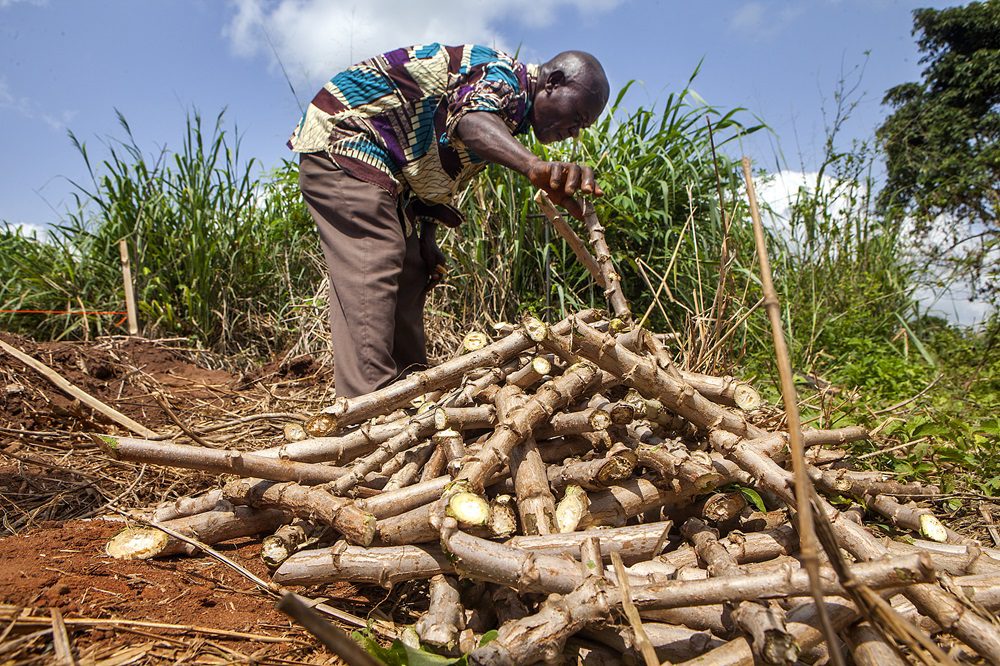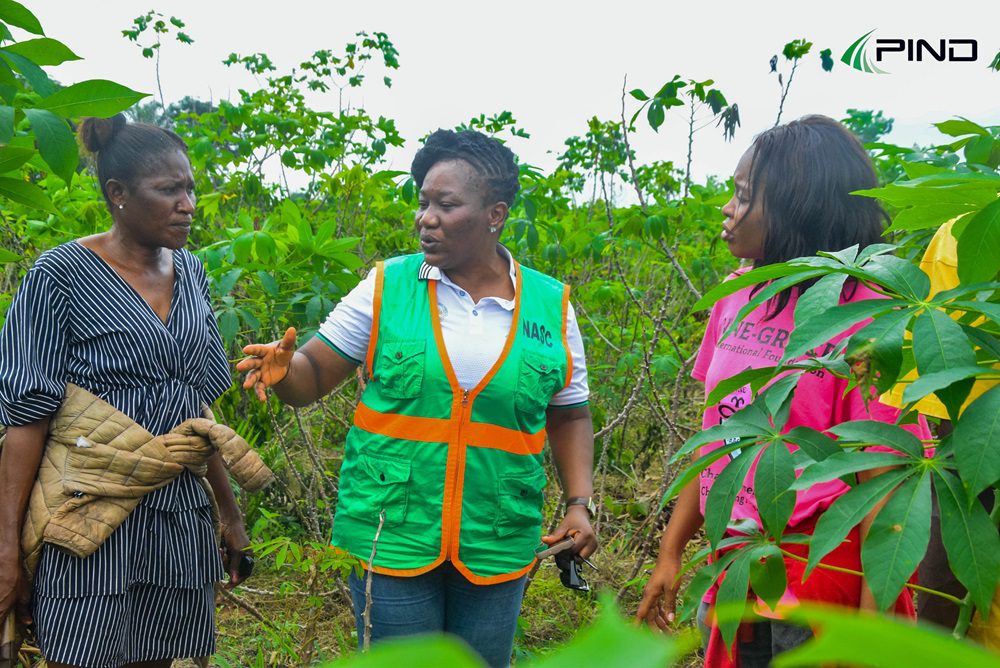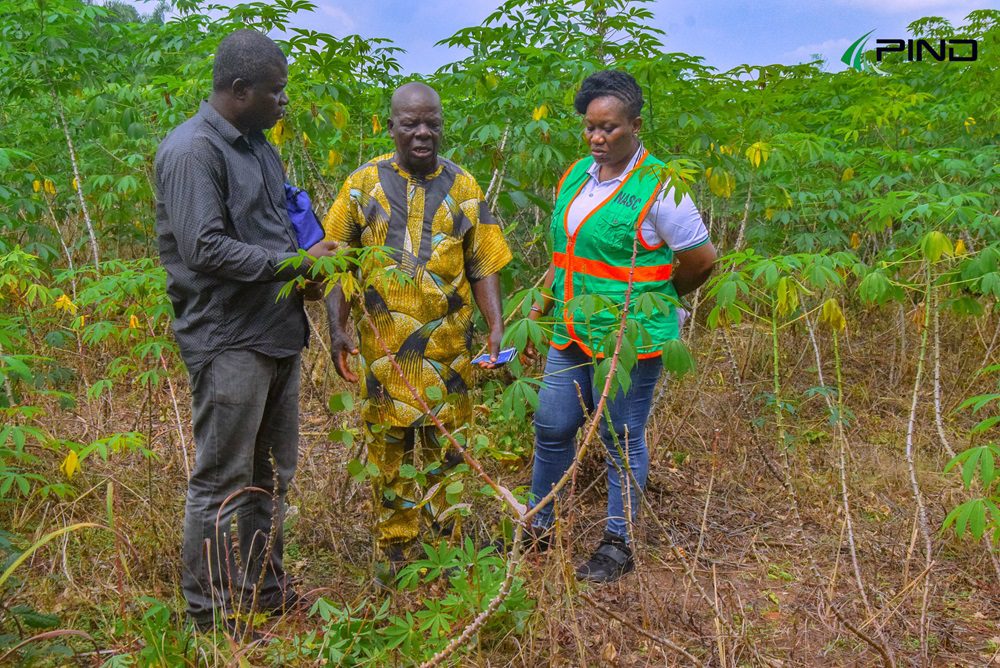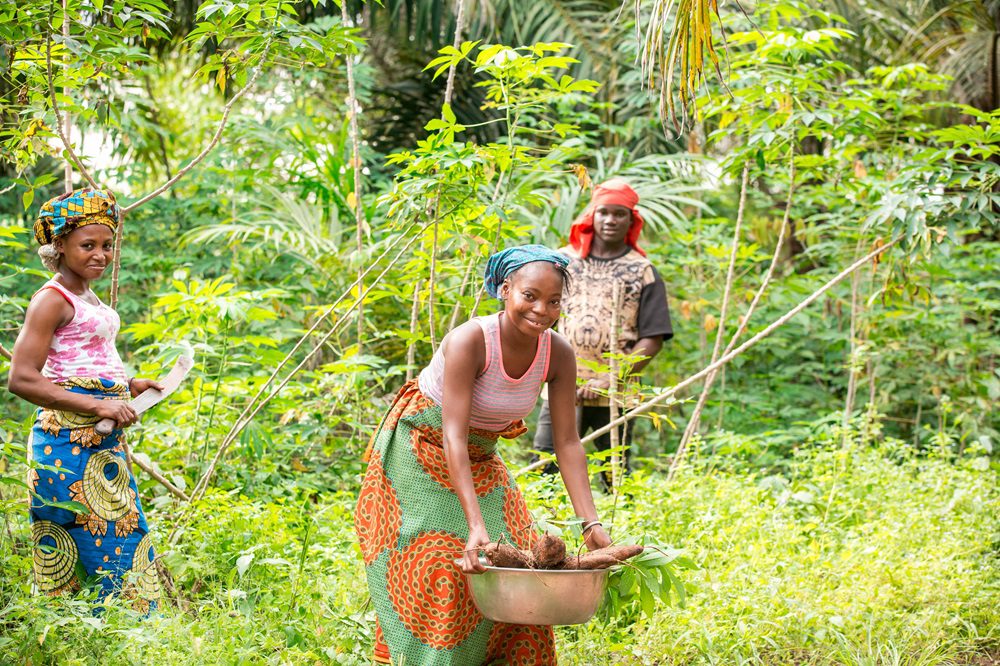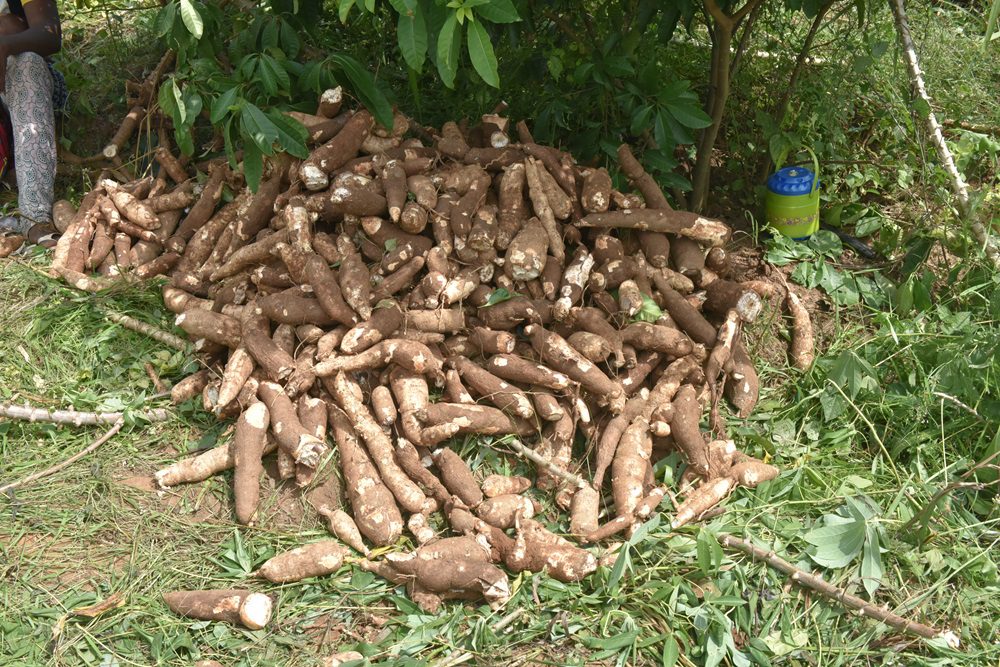To ensure compliance with NASC’s certification requirements for cassava seed multiplication, the Foundation for Partnership Initiatives in the Niger Delta (PIND), in collaboration with the National Agricultural Seeds Council (NASC), Umudike Seeds, and Kolping Society of Nigeria, recently conducted a comprehensive post-planting certification field visit from July 17th to 19th, 2024. This initiative targeted Cassava Seed Entrepreneurs (CSEs) and smallholder farmers in Abia, Delta, and Akwa Ibom states.
The field visit was designed to assess the seed/stem quality, condition of improved varieties planted to enable smallholder farmers’ access to a consistent supply of disease-resistant, disease-free seeds in the Niger Delta region. By directly engaging with the cassava seed entrepreneurs, PIND was able to provide critical feedback, address challenges, and implement strategies to ensure that multiplication plots align with and surpass industry standards.
This certification effort builds on previous phases, including pre-planting, planting, and ongoing monitoring, through which PIND has certified 25 seed entrepreneurs who have successfully navigated these stages.
The process also allowed PIND to observe firsthand the impact of its support to farmers. Over the years, PIND has successfully reached out to more than 25,332 smallholder cassava farmers with vital information on best practices, innovative technologies, and high-quality inputs to improve their yield output. This extensive outreach has resulted in the creation of 1,658 new jobs and stimulated an impressive investment of 1.46 billion naira by market actors within the cassava value chain. As a result, 17,158 farmers have experienced a substantial income increase of NGN 6.01 billion in the sector.
To further support the sector, PIND has introduced a new training manual titled “Improved Agronomic Practices for Sustainable High Yield of Cassava,” which aims to promote safer and more productive farming methods.
Looking ahead, PIND remains dedicated to strengthening the cassava sector in the Niger Delta. The ongoing support and investment reflect a commitment to improving agricultural practices and fostering economic growth and sustainability within local communities. By continuing to address the needs of farmers and adapting strategies to meet evolving challenges, PIND is poised to drive further advancements in the region’s agricultural landscape.

